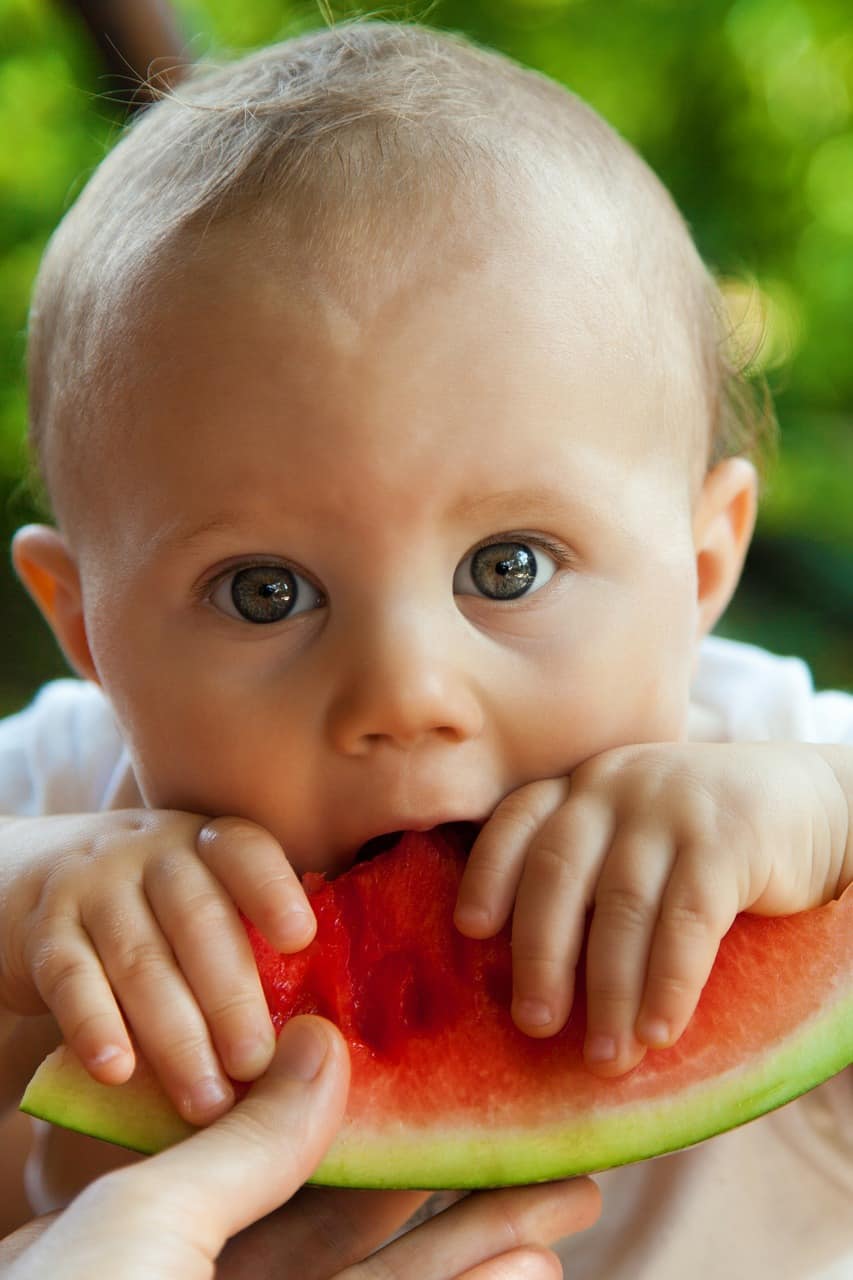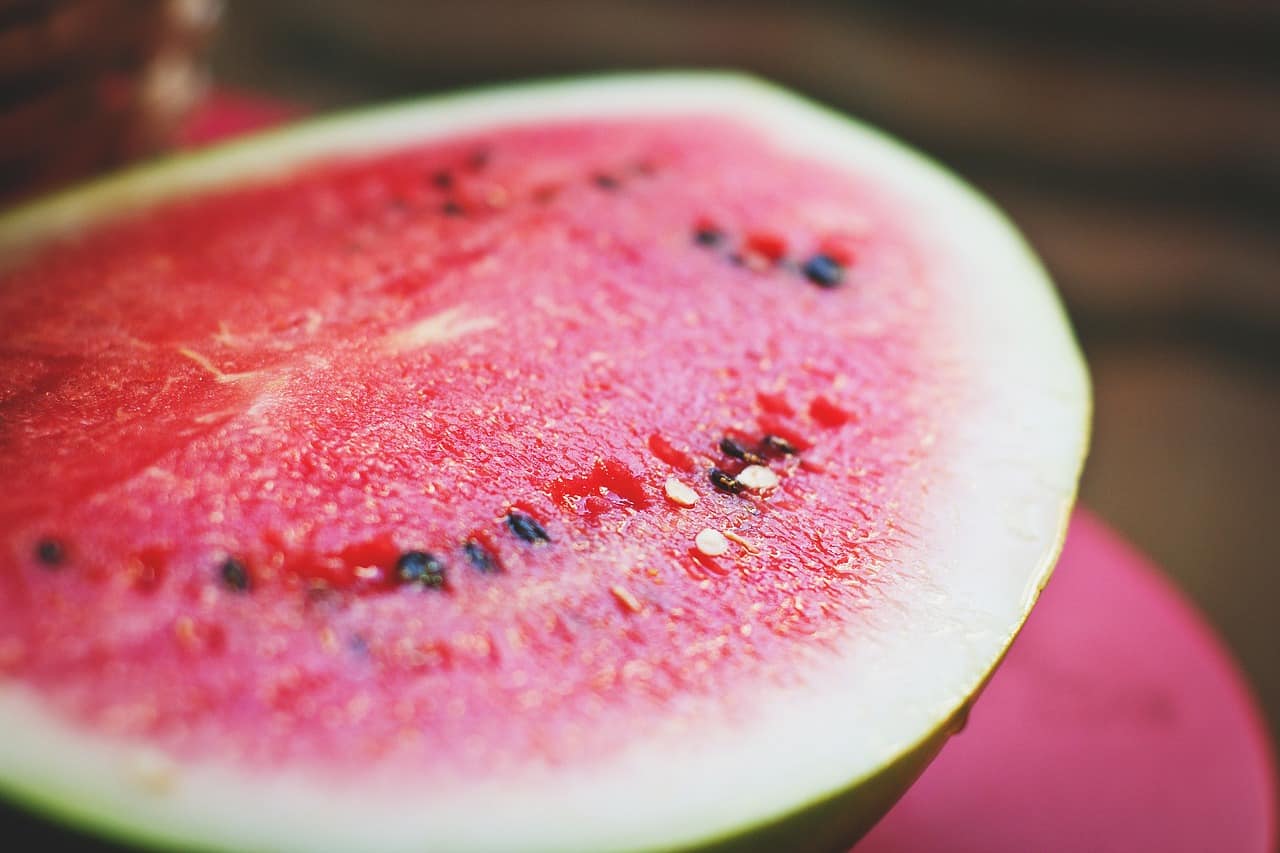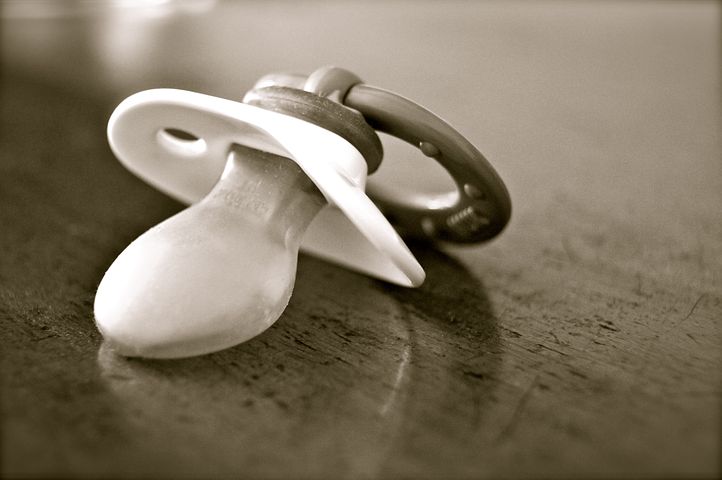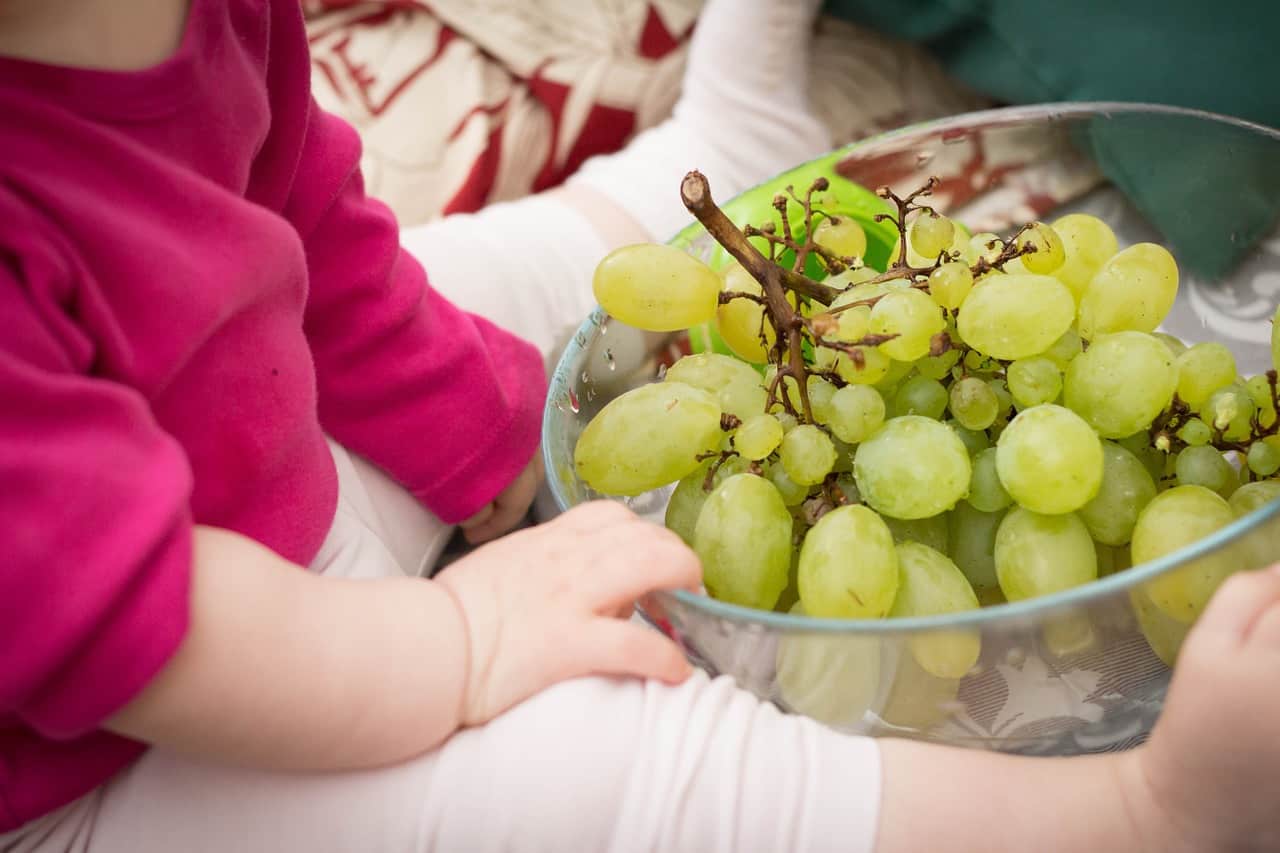When Can Babies Eat Watermelon – Benefits, Recipes, And More
Summer is the season for watermelon. This round, juicy fruit is the perfect snack for a hot, sweaty day. A single bite of it can instantly cool you off in minutes.
Watermelon is a popular fruit around the world. The number one exporter of watermelon is China. However, you can find plantations in different countries, such as Turkey, Iran, Brazil, and Uzbekistan.
Watermelon can be consumed by itself or as a part of a dish. It’s frequently turned into a juice, dessert, or side dish. It’s also common to combine watermelon with other foods, especially fruits.
Watermelon is sweet, watery, and fun to eat. Anybody can have a taste of watermelon. And even your baby can have a munch on this tasty and healthy fruit.
Here is why you should give your child watermelon. Not only is this fruit a great treat for the sunny weather, but it’s also a good source of nutrients.
Skip To The Following Sections
What is A Watermelon, and What Benefits Does It Have?
Almost everyone is familiar with what a watermelon is. It’s a round fruit with green skin, followed by a rind, then a juicy, edible flesh, and some black seeds.
However, watermelons come in plenty of varieties. As a matter of fact, there are 50 different varieties of watermelon that are available on the market! Watermelons are classified as seedless, picnic, icebox, and yellow/orange fleshed.
But for the sake of clarity, let’s focus on the popular red, seeded watermelon. Another fact is that watermelon comes from the same family as cantaloupe, honeydew, and cucumber. And what all these fruits have in common is that they are rich in water.
Watermelon, in particular, is 90% water. It’s no substitute for drinking water, but it can help you stay hydrated during the summer season. Watermelon is also naturally sweet, so it’s perfect for an afternoon dessert.
But watermelon is more than just water and sugar. Watermelon is rich in antioxidants, which can help remove free radicals from the body. Removing free radicals can help lower the risks of cancer and heart diseases.
Watermelon is also rich in vitamins and minerals that can help boost your body. Watermelon is a rich source of Vitamin A, B1, B5, B6, and C. It also has potassium and magnesium.
Eating watermelon moderately can help the body function and stay healthy. Watermelon has been linked to asthma prevention, gut health, skincare, and metabolic syndrome improvement.
Watermelon can cause some issues with blood sugar since it has a high glycemic index. However, this does not mean people with diabetes must avoid watermelon like the plague. Instead, people can enjoy watermelon in small to moderate amounts.
To conclude this section, watermelon is a fairly healthy and juicy fruit. It comes in plenty of variety and is packed with plenty more nutrients. People can safely add watermelon to their diet as an occasional fruity treat.
So When Can Babies Eat Watermelon?
Let’s go back to our little tots. Fortunately for them, they can have a taste of watermelon when they can eat solid food. Usually, this is right around 6 months.

Watermelon is a safe fruit that you can introduce to your baby. Watermelon rarely causes allergies, although there is still a slim chance of it happening. Watermelon is also not a choking hazard, as long as you cut it right and remove the seeds.
A little warning though, watermelon can cause some cases of diarrhea. Watermelon is rich in sorbitol and lycopene, chemicals that respectively give the fruit its sweetness and color. They are also notorious for making you and your baby want to go number two.
It also should be said that watermelon is rich in sugar. Too much sugar can be trouble, especially for young children. It’s best to keep watermelon as a snack that is served sparingly.
Putting aside sugar content and digestive issues, watermelon is a nice occasional treat. It’s also a good weaning food for young infants. Watermelon is sweet, juicy, and tasty, something that babies will have a hard time resisting.
How To Serve Watermelon to My Baby?
A quarter slice of watermelon is a normal serving size if you are an adult. For babies, however, you can’t really expect them to eat that much.
For 6-12 month infants, start them out small with thin, rectangular slices. As your baby grows older, you can start introducing them to bigger slices. You can introduce them to triangular shapes at 12-18 months, and finally, give them a half-moon slice at 18-24 months.
There are other ways to serve watermelon to your child too. If your baby is tired of watermelon slices, you can switch things up with different recipes.
You can introduce them to sweet treats like watermelon popsicles or watermelon smoothies. If your toddler loves yogurt, you can give them watermelon parfait or watermelon “pizza.” Or maybe keep it simple with some watermelon puree with fruits and berries.
You can read more of these recipes right here. And if none of these tickle your fancy, you can try and make your own watermelon dessert.
Conclusion
Watermelon is a yummy treat that you and your baby can enjoy. It’s a fruit that is made to keep you hydrated and fresh during summer. And it’s also rich in vitamins, minerals, and antioxidants.
You can feed your baby watermelon at an early age. It’s not allergenic like other foods and, if carefully prepared, won’t cause choking. However, too much watermelon can cause a spike in blood sugar and some gut problems.
You can feed watermelon in small amounts now and then. And what’s amazing is that watermelon is very flexible. Watermelon tastes great with other fruits and vegetables.
You can make watermelon into a healthy snack or dessert. You can also use it to wean your baby. And best of all, you can have some watermelon yourself (the fruit is big, so I doubt your baby can eat all of it.)
Watermelon is a tasty summer treat that everybody in the family can enjoy. It’s one of the best ways to stay hydrated while at home, at the park, or on the beach. Just don’t forget to bring some napkins; it can get a little bit messy.










